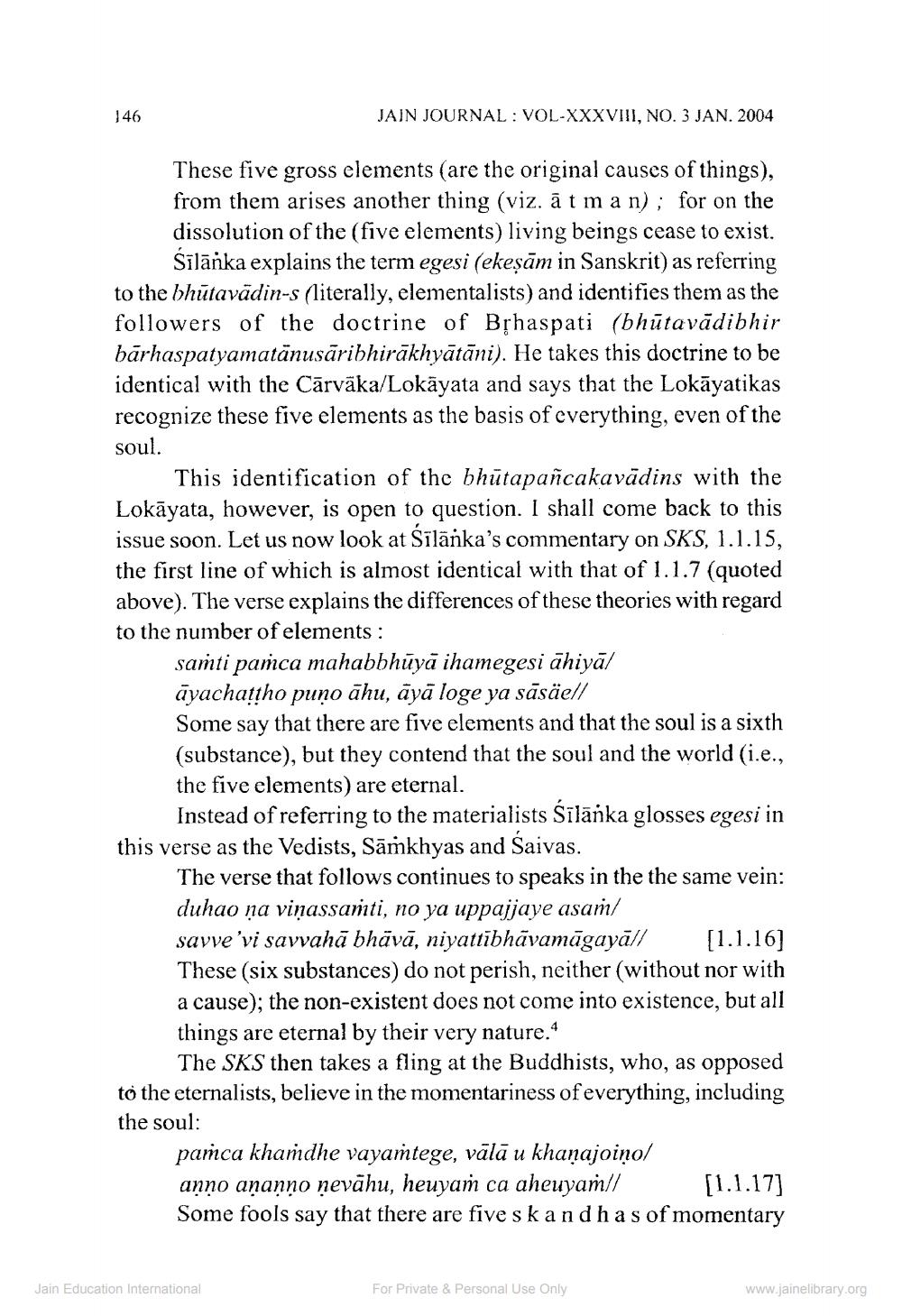________________
146
JAIN JOURNAL VOL-XXXVIII, NO. 3 JAN. 2004
These five gross elements (are the original causes of things), from them arises another thing (viz. a t ma n); for on the dissolution of the (five elements) living beings cease to exist. Śīlānka explains the term egesi (ekeṣām in Sanskrit) as referring to the bhutavadin-s (literally, elementalists) and identifies them as the followers of the doctrine of Bṛhaspati (bhūtavādibhir bārhaspatyamatānusāribhirākhyātāni). He takes this doctrine to be identical with the Cārvāka/Lokāyata and says that the Lokayatikas recognize these five elements as the basis of everything, even of the soul.
This identification of the bhutapañcakavādins with the Lokayata, however, is open to question. I shall come back to this issue soon. Let us now look at Śīlānka's commentary on SKS, 1.1.15, the first line of which is almost identical with that of 1.1.7 (quoted above). The verse explains the differences of these theories with regard to the number of elements:
samti pamca mahabbhūyā ihamegesi āhiyā! ayachattho puno ahu, āyā loge ya säsäe//
Some say that there are five elements and that the soul is a sixth (substance), but they contend that the soul and the world (i.e., the five elements) are eternal.
Instead of referring to the materialists Sīlāńka glosses egesi in this verse as the Vedists, Samkhyas and Saivas.
The verse that follows continues to speaks in the the same vein: duhao na viņassamti, no ya uppajjaye asam/
savve 'vi savvahā bhāvā, niyattībhāvamāgayā// [1.1.16] These (six substances) do not perish, neither (without nor with a cause); the non-existent does not come into existence, but all things are eternal by their very nature.4
The SKS then takes a fling at the Buddhists, who, as opposed to the eternalists, believe in the momentariness of everything, including the soul:
pamca khaṁdhe vayamtege, vālā u khaṇajoiņo/ anno aṇanno nevahu, heuyam ca aheuyam// Some fools say that there are five skand has of momentary
[1.1.17]
Jain Education International
For Private & Personal Use Only
www.jainelibrary.org




